Celebrating Women, Transgender, and Non-Binary Research Leaders
 As a contribution to the celebration of 150 Years of Women at Berkeley, the Vice Chancellor for Research Office wishes to applaud all the women, transgender, and non-binary people who have contributed to UC Berkeley’s international research reputation. In particular we would like to highlight those scholars who head up the VCRO’s research institutes and centers, museums, and field stations. We are grateful for their service and are happy to celebrate their unique and inspiring achievements across a diversity of fields.
As a contribution to the celebration of 150 Years of Women at Berkeley, the Vice Chancellor for Research Office wishes to applaud all the women, transgender, and non-binary people who have contributed to UC Berkeley’s international research reputation. In particular we would like to highlight those scholars who head up the VCRO’s research institutes and centers, museums, and field stations. We are grateful for their service and are happy to celebrate their unique and inspiring achievements across a diversity of fields.
Beth Piatote
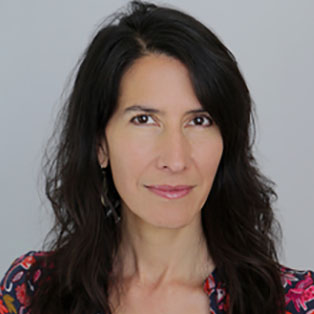 Associate Professor, Native American Studies
Associate Professor, Native American Studies
Interim Director, Center for Race & Gender
Beth Piatote is an associate professor of Native American Studies. She is also a writer of short fiction, personal essay, drama, and academic essay. She is the author of two books: a scholarly monograph, Domestic Subjects: Gender, Citizenship, and Law in Native American Literature, the forthcoming mixed-genre collection, The Beadworkers: Stories and, her work has appeared in numerous journals and collections. Beth’s current book project explores the ways in which Native American writers have drawn upon sensory representations such as sound and synesthesia to produce a distinct legal imaginary that contests settler-colonial incursion and affirms indigenous politics and aesthetics. Her play, Antíkoni, premiered in 2018 at the University of California, Berkeley. In addition to writing, Beth is devoted to indigenous language revitalization, focusing on Nez Perce. She is Nez Perce, enrolled with Colville Confederated Tribes.
Christine Hastorf
Professor, Anthropology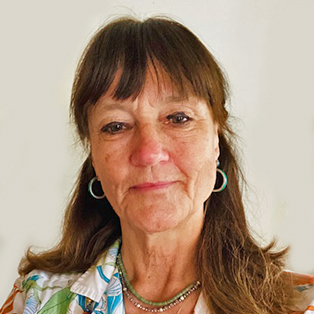
Director, Archeological Research Facility
To study the long term sustainability of past farmers, Christine Hastorf applies Paleoethnobotany, the study of plants used by people in the past, to throw light on indigenous peoples of the highland Andes over time. This research includes investigating their social interactions, political transformations, rituals, gender relations, foodways, meaning in the everyday, agricultural production, and more. In addition to many articles on these topics, Christine has produced several key volumes in archaeology, including Current Paleoethnobotany with Virgina Popper, The Uses of Style with Margaret Conkey, Agriculture and the Onset of Political Inequality before the Inka, and the award winning The Social Archaeology of Food: Thinking about eating in the past and present. Hastorf won the Society for American Archaeology Fryxell Award for Excellence in the Botanical Sciences in Archaeology in 2012. Her work on wild plants and domesticates and their role in the symbolic and political realms, illuminates the concept of culture in the natural world.
Constance Chang-Hasnain
Professor, Electrical Engineering
Director, Tsinghua-Berkeley Shenzhen Institute
Professor Chang-Hasnain’s research interests range from semiconductor optoelectronic devices to materials and physics, with current foci on nano-photonic materials and devices for chip-scale integrated optics. Some of her awards and fellowships include the Okawa Price (2018), Quantum Device Award (2014), IEEE David Sarnoff Award (2011), a National Security Science and Engineering Faculty Fellowship by the Department of Defense (2008), a Humboldt Research Award (2009), and a Guggenheim Fellowship (2009). She is an elected member of National Academy of Engineering, a member of the US Advisory Committee to the International Commission on Optics, National Academy of Sciences and Skolkovo Foundation Scientific Advisory Council. She also served on councils such as the National Research Council Committee on “Optics and Photonics: Essential Technologies for Our Nation” and US Air Force Scientific Advisory Board. She was the Editor-in-Chief Journal of Lightwave Technology 2007-2012 and is Associate Editor of the OSA Optica, since 2013. In 2021, she will be serving as the President of OSA.
Dana Carney
 Associate Professor, Berkeley Haas
Associate Professor, Berkeley Haas
Director, Institute of Personality and Social Research
Carney's work often dives deeply into the most micro aspects of social behavior—nonverbal behavior—and much of her work seeks to uncover what it is we actually do with our bodies and faces when we express prejudice, or status, for example. She studies social behavior, and she is particularly interested in the behavioral expression of prejudice, political affiliation and engagement, generosity, power, and status. Carney has been invited to share her research and teaching at academic conferences, universities, and companies all over the world. To Wall Street, she often instructs on topics related to power, status, corruption, and deception. To biotech, pharma, and tech she instructs on topics related to subtle forms of prejudice and discrimination, teamwork, culture, power, and nonverbal communication. At the National Labs, she instructs on teamwork, diversity, and social networks. Some selected papers she authored includes Different physiological reactions when observing lies vs. truths: initial evidence and an intervention to enhance accuracy and Can ordinary people detect deception after all?.
Eileen Lacey
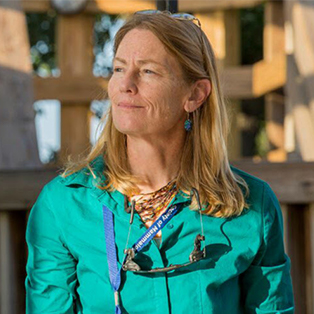 Professor, Integrative Biology
Professor, Integrative Biology
Associate Director, Museum of Vertebrate Zoology
Director, Hastings Natural History Reservation
Eileen would describe her work to a stranger as “chasing rodents in South America.” Her research program explores the evolution of behavioral diversity among vertebrates, with emphasis on studies of mammals. By combining field studies of behavior, ecology, and demography with genomic analyses of kinship and gene expression, she seeks to identify the causes and consequences of variation in mammalian social behavior. Although Eileen is broadly interested in social behavior and sponsors students working on a variety of vertebrate taxa, her current research focuses on studies of subterranean rodents from Argentina and Chile. The objectives of this work are as follows: 1) To identify ecological and evolutionary causes of sociality. 2) To assess the genetic and genomic consequences of sociality.
G. Cristina Mora
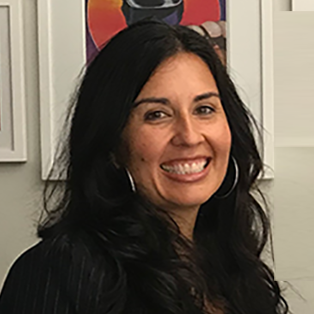 Associate Professor, Sociology
Associate Professor, Sociology
Co-Director, Institute of Governmental Studies
Professor Mora’s research focuses mainly on questions of census racial classification, immigration, and racial politics in the United States and Europe. Her book, Making Hispanics, was published by the University of Chicago Press and provides the first historical account of the rise of the “Hispanic/Latino” panethnic category in the United States. This work, along with related articles, has received wide recognition, including the 2010 Best Dissertation Award and the 2018 Early Career Award (SREM) from the American Sociological Association. Making Hispanics has also been the subject of several NPR and national media segments on Census Politics and Latino identity (see links below). Her work has been published in venues like the American Sociological Review, Annual Review of Sociology, Latino Studies, and the Du Bois Review. In addition, Professor Mora’s research on culture focuses on immigrant religion, as well as on the diffusion of Pentecostalism in Latin America.
Gail Brager
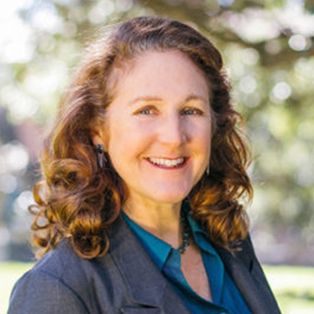 Professor, Architecture
Professor, Architecture
Director, Center for Environmental Design Research
Associate Director, Center for the Built Environment
Associate Dean, Berkeley Graduate Division
Gail Brager has a Ph.D. in Mechanical Engineering, and is a Professor in Building Science & Sustainability in the Dept. of Architecture at UC Berkeley. She is Director of the Center for Environmental Design Research, and Associate Director of the Center for the Built Environment, an industry/university collaborative research center with approximately 50 diverse building industry partners. Prof. Brager has over 35 years of experience, teaching and conducting research addressing the design, operation, and assessment of buildings to minimize energy consumption and associated carbon emissions while enhancing indoor environmental quality. She is currently writing a book about experiential design strategies for buildings, intersecting building and health sciences with architectural design.
Irene Bloemraad
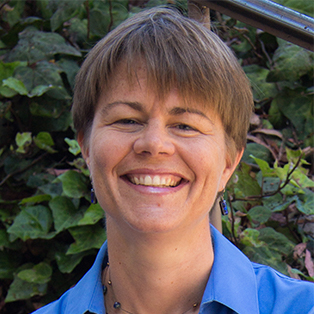 Professor, Sociology
Professor, Sociology
Chair, Canadian Studies
Director, Berkeley Interdisciplinary Migration Initiative
Bloemraad studies the nexus between immigration and the political system. She is the author of Becoming a Citizen: Incorporating Immigrants and Refugees in the United States and Canada, which suggests that any effective immigration policy must examine not just border control, but also integration and settlement policies. Bloemraad is also the co-editor of Civic Hopes and Political Realities about the civic inequalities that arise from unequal voice and visibility for immigrant organizations. She co-edited Rallying for Immigrant Rights, the first book-length treatment of the 2006 immigration rallies that brought millions of people into the streets to oppose the criminalization of undocumented migrants. More recently, she co-edited the Oxford Handbook of Citizenship, a state-of-the-art synthesis of current scholarship on citizenship. Her current work looks at the effects of multiculturalism policy on socio-political outcomes, the prevalence of immigrant nonprofits in suburbs and central cities, the political socialization of people living in mixed legal status families, and the resonance of rights claims in shifting voters' views on immigration policy.
Jill Duerr Berrick
Professor, School of Social Welfare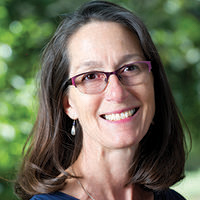
Director, Centre for Child and Youth Policy
Jill Duerr Berrick serves as the Zellerbach Family Foundation Professor in the School of Social Welfare at U.C. Berkeley. Berrick’s research focuses on the relationship of the state to vulnerable families, particularly those touched by the child welfare system. She has written or co-written 11 books on topics relating to family poverty, child maltreatment, and child welfare services and has written extensively for academic journals. Berrick’s research approach typically relies upon the voices of service system consumers to identify the impacts of social problems and social service solutions in family life. Her newest book, The Impossible Imperative: Navigating the Competing Principles of Child Protection examines child welfare professionals and the morally contentious and intellectually demanding choices they regularly face in their work with children and families.
Junko Habu
Professor, Anthropology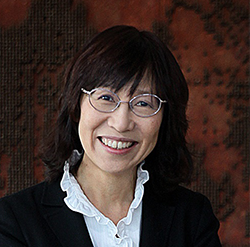
Chair, Center for Japanese Studies
Junko Habu conducts research on human-environmental interaction, human rights, and the long-term sustainability of human cultures and societies in the past and present. The geographic focus of her research is on Japan and East Asia. Using the theoretical framework of historical ecology, her research focuses on the importance of food and subsistence diversity, social networks and local autonomy for understanding the resilience of socioeconomic systems. Her archaeological projects in Japan, including the Berkeley Sannai Maruyama Project and the Goshizawa Matsumori Project, examine the mechanisms of long-term culture change among prehistoric Jomon hunter-gatherers (ca. 14,000-500 BC). From 2014 to 2017, Junko was the leader of the Small-scale Economies Project, a three-year collaborative project that involved in transdisciplinary studies of archaeological sites as well as modern-day rural communities and small-scale food production units, with an emphasis on the importance of traditional ecological knowledge reflected in material culture. As an environmental anthropologist working on Japan, she has also been working on the study of the impacts of the Great East Japan Earthquake of March 11, 2011 and the Fukushima Nuclear Accident. In collaboration with local scholars and stakeholders, Junko uses insights obtained from these projects to develop outreach and implementation programs to promote place-based, small-scale and diversified food production.
Laura Pérez
Professor, Ethnic Studies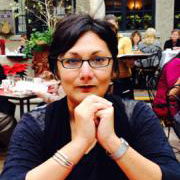
Chair, Latinx Research Center
Laura Elisa Pérez is a professor in the Department of Ethnic Studies, and Chair of the Latinx Research Center, an interdisciplinary and transAmericas research hub at the University of California, Berkeley. She is Coordinator of the Chicano/o Studies Program and founding co-Chair of the Chicanx Latinx Standing Committee, and served as an inaugural member of the Building Name Review Committee. Pérez received her Ph.D. from Harvard University and a BA/MA Joint Degree from The University of Chicago. Pérez curated UC Berkeley's first Latina/o Performance Art series, co-curated "Chicana Badgirls: Las Hociconas," and curated "Labor+a(r)t+orio: Bay Area Latina@ Arts Now." Pérez is the author of Chicana Art: The Politics of Spiritual and Aesthetic Altarities (Duke University Press, 2007), a work in which she theorized the concepts of decolonial aesthetics and decolonial spiritualities, and analyzed an archive of the work of more than forty visual, literary, and performance artists. She is also the author of Ero-Ideologies: Writings on Art, Spirituality, and the Decolonial (Duke University Press, 2019) and the co-editor of the forthcoming anthology "Consuelo Jiménez Underwood: Art, Weaving, Vision" (Duke University Press, 2021). Pérez was co-founder of the prize-winning Berkeley Hills Books and North Bay Books, small independent book publishers.
Lauren Kroiz
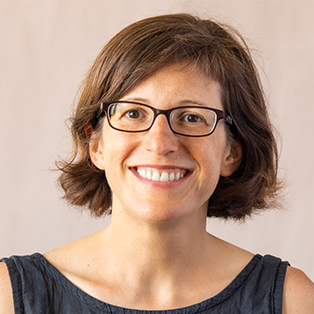 Associate Professor, History of Art
Associate Professor, History of Art
Faculty Director, Phoebe A. Hearst Museum of Anthropology
Lauren Kroiz’s research and teaching focus is art and modernism in the United States during the twentieth century. She has taught a range of topics in the history of American art, photography, material culture, and modernism, including courses on avant-gardism, race and representation, thing theory, museum studies, technologies of imaging, meanings of medium, and globalization. Kroiz is the author of Cultivating Citizens: The Work of Art in the New Deal Era (University of California Press, 2018) and Creative Composites: Modernism, Race, and the Stieglitz Circle (University of California Press, 2012). Kroiz’s work has been honored by the Phillips Collection Book Prize (2010), the Society for the Preservation of American Modernists’ Publication Grant (2011), the Patricia and Phillip Frost Essay Award (2016), the College Art Association’s Wyeth Foundation for American Art Publication Grant (2016), the Terra Foundation for American Art’s Visiting Professorship at Freie Universität Berlin (2018), and the Midwestern History Association’s Jon Gjerde Book Prize (2019). She is currently at work on a project about whiteness and the visual culture of female suffrage.
Leti Volpp
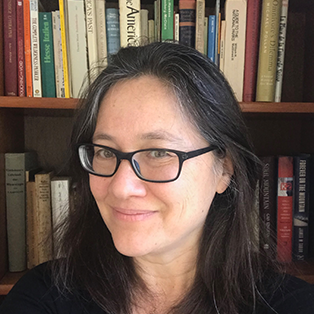 Robert D. and Leslie Kay Raven Professor of Law, UC Berkeley School of Law
Robert D. and Leslie Kay Raven Professor of Law, UC Berkeley School of Law
Faculty Director, Center for Race & Gender
Volpp is a scholar of immigration and citizenship law whose research focuses on how law is shaped by ideas about culture and identity. Her most recent publications include "Protecting the Nation from 'Honor Killings': the Construction of a Problem" in Constitutional Commentary (2019), "Refugees Welcome?" in Berkeley La Raza Law Journal (2018), "Passports in the Time of Trump," in Symploké (2018), "Feminist, Sexual, and Queer Citizenship" in the Oxford Handbook of Citizenship (2017), “Immigrants Outside the Law: President Obama, Discretionary Executive Power, and Regime Change” in Critical Analysis of Law (2016), and “The Indigenous As Alien” in the UC Irvine Law Review (2015). She is the editor of Looking for Law in All the Wrong Places: Justice Beyond and Between (with Marianne Constable and Bryan Wagner) (Fordham University Press, 2019) and of Legal Borderlands: Law and the Construction of American Borders (with Mary Dudziak) (Johns Hopkins University Press, 2006). She is also the author of “The Culture of Citizenship” in Theoretical Inquiries in Law (2007), “The Citizen and the Terrorist” in UCLA Law Review (2002), "Femnism versus Multiculturalism" in the Columbia Law Review (2001) and many other articles. Volpp’s numerous honors include two Rockefeller Foundation Humanities Fellowships, a MacArthur Foundation Individual Research and Writing Grant, the Association of American Law Schools Minority Section Derrick A. Bell, Jr., Award, and the Professor Keith Aoki Asian Pacific American Jurisprudence Award. She has delivered many public lectures, including the James A. Thomas Lecture at Yale Law School, the Korematsu Lecture at New York University Law School, and the Barbara Aronstein Black Lecture at Columbia Law School. Volpp is a member of the International Scientific Advisory Board of the Max Planck Institute for the Study of Religious and Ethnic Diversity in Göttingen, Germany.
Marla Feller
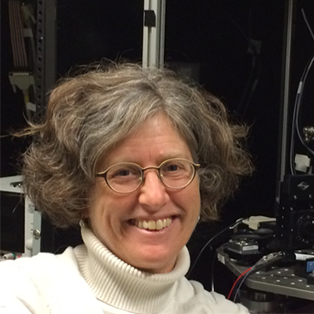 Professor, Biological Sciences
Professor, Biological Sciences
Director, Miller Institute for Basic Research in Science
Marla is interested in the mechanisms that guide the assembly of neural circuits during development. She uses the retinas as a model system, where she uses two-photon imaging, electrophysiology and a variety of anatomical approaches to address two major questions. First, she studies how immature retinal circuits generate retinal waves -- a term used to describe highly patterned spontaneous activity in the immature retina -- and what role this activity plays in the development of the retina and the retina's connections to the central visual system. Second, she studies the development and organization of the functional neural circuits that extract information from the visual scene. Marla’s current projects include interactions between retinal waves and intrinsically photosensitive retinal ganglion cells, neuronal-glial signaling during development, and the relative role of neural activity and molecular signals in instructing the wiring of circuits that mediate direction selectivity. Some of her selected publications include Light prior to eye-opening promotes retinal waves and eye-specific segregation and A dense starburst plexus is critical for generating direction selectivity.
Mary Power
Professor, Integrative Biology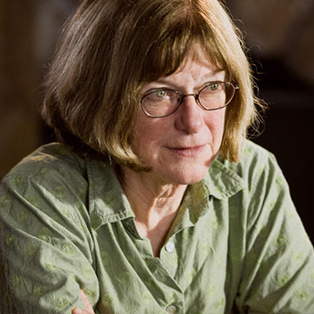
Faculty Director, Angelo Coast Range Reserve
Mary Power has been swimming rivers in a spirit of curiosity from childhood on. As a scholar she focused on life in river food webs, including bacteria, algae, crustacea, aquatic insects, and fish, as well as the grasshoppers, spiders, lizards, birds, and bats that are sustained by river productivity. She was featured in the environmental documentary film The Serengeti Rules (2019) and has been recognized with numerous awards, including the Kempe Medal for outstanding ecologist by by Sweden’s Umeå University, the Hutchinson Award from the American Society of Limnologists and Oceanographers, and the Award of Excellence from the Society of Freshwater Science. She is a member of the California Academy of Science, the American Academy of Arts and Sciences, and National Academy of Sciences. Since 1988, she has been the Faculty Director of the Angelo Coast Range Reserve in Mendocino, California, working on the Eel River.
Mel Chen
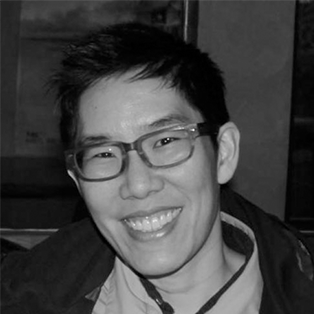 Associate Professor, Gender & Women’s Studies
Associate Professor, Gender & Women’s Studies
Director, Center for the Study of Sexual Culture
Mel Y. Chen's research and teaching interests include queer and gender theory, animal studies, critical race theory and Asian American studies, disability studies, science studies, and critical linguistics. Chen’s 2012 book, Animacies: Biopolitics, Racial Mattering, and Queer Affect (Duke University Press, winner of Alan Bray Award from Modern Language Association’s GL/Q Caucus), explores questions of racialization, queering, disability, and affective economies in animate and inanimate “life” through the concept of “animacy.” They are completing their second book project on chemical intimacies, focusing on the conceptual territories of “toxicity” and “intoxication” and their involvement in both 19th century and contemporary histories of the shared interanimation of race, disability, and time. Further writing can be found in South Atlantic Quarterly, Women’s Studies Quarterly, GLQ, Journal of Literary and Cultural Disability Studies, October, Transgender Studies Quarterly, Discourse, Women in Performance, Australian Feminist Studies, Amerasia, and Medical Humanities. Chen coedits the “Anima” book series highlighting scholarship in critical race and disability post/in/humanisms at Duke University Press. They are part of a small and sustaining queer-trans of color arts collective in the San Francisco Bay Area.
Rena Dorph
Director, Lawrence Hall of Science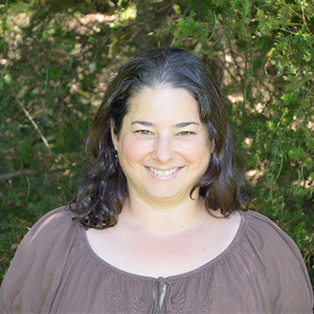
Rena began working at the Lawrence Hall of Science as the Director of the Research Group in 2003. Since that time has as the Principal Investigator for many projects including the Activation Lab. In 2014 Rena also served as a Lecturer at the UC Berkeley’s Graduate School of Education. Rena’s research focuses on the relationship between learning experiences and outcomes, paying consistent attention to issues of equity, access, and impact. Her current projects include studying science learning in outdoor settings, studying how to more deeply engage English Language learners in mathematics learning, designing assessments of computational thinking for science, and enabling broader impacts of scientific research. Rena is committed to ensuring that the work of The Lawrence is “both generated from and generative of research in the field by ensuring that researchers and practitioners work in deep collaboration on both research and learning design.” Rena serves on multiple governing and advisory boards—including the Board of Directors of WestEd and the Board of Directors for the Association of Science and Technology Centers (ASTC). In 2019 Rena was recognized by the San Francisco Business Times as one of the Bay Area’s Most Influential Women in Bay Area Business.
Rosemary Gillespie
Professor, Systematic Entomology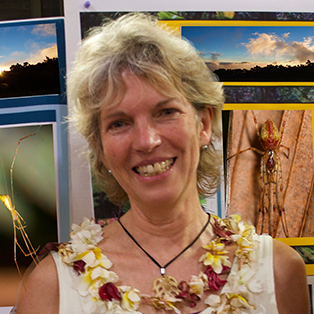
Director, Essig Museum of Entomology
Rosemary’s research uses islands as model systems with which to understand ecological and evolutionary processes. Hotspot archipelagoes, such as Hawaii, provide a temporal framework of islands that allows one to synthesize ecological and evolutionary perspectives. She uses this framework to integrate ecological and evolutionary approaches to build a predictive understanding of the dynamic interplay between ecology and evolution in shaping the biodiversity of complex ecosystems. She is an elected member of the American Academy of Arts and Sciences, and past President of the American Genetics Association and the International Biogeography Society (IBS) and her awards include NSF’s Presidential Award for Excellence in Science, Mathematics, and Engineering Mentoring and IBS Alfred Russel Wallace Award.
Shafi Goldwasser
C. Lester Hogan Professor, Electrical Engineering and Computer Science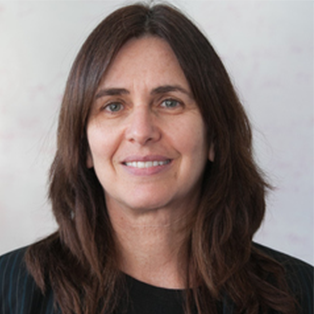
Faculty Director, Simons Institute for the Theory of Computing
Shafi Goldwasser has made fundamental contributions to cryptography, computational complexity, computational number theory and probabilistic algorithms. Her career includes many landmark papers which have initiated entire subfields of computer science. These include creating the theoretical foundations of modern cryptography, the introduction of zero-knowledge interactive proofs, the introduction of multi-prover proofs (later known as probabilistically checkable proofs), discovering the connection between probabilistically checkable proofs and the intractability of approximation problems, showing how to use the theory of elliptic curves to distinguish primes from composites, and launching combinatorial property testing. Some of her awards include the ACM Turing Award for 2012, the Gödel Prize in 1993 and 2001, the Benjamin Franklin Medal in Computer and Cognitive Science (2010), the IEEE Emanuel R. Piore Award (2011), and the Suffrage Science Award (2016). Shafi holds a B.S in Applied Mathematics from Carnegie Mellon University (1979), and an M.S and a Ph.D. in Computer Science from UC Berkeley.
Sophie Volpp
Associate Professor, Comparative Literature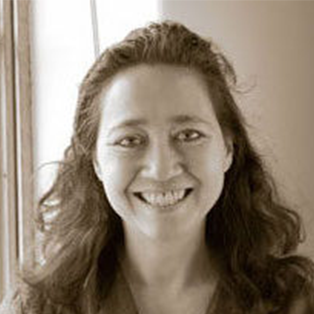
Director, Center for Chinese Studies
Sophie Volpp specializes in Chinese literature of the seventeenth through nineteenth centuries. Her various projects have asked the question of how literature is related to the world beyond. Sophie’s book Worldly Stage: Theatricality in Seventeenth-Century China (Harvard, 2011) concerned the cultural niche occupied by the theater in seventeenth-century China. Her forthcoming book The Substance of Fiction: Literary Objects in Ming-Qing China (1550-1750) (Columbia University Press, 2021) shows how fictional objects both point us toward historical objects and complicate questions of reference, ultimately asking how we might read historical objects differently were we to use the lens of late-imperial fiction. She is currently working on two projects, a book entitled The Stone and the World that engages in a historicized reading of Cao Xueqin's novel The Story of the Stone, and a book on the efforts of the National Peip'ing Library, the precursor of the National Library of China, to preserve its collection during the Second Sino-Japanese war.
Susan Hyde
Professor, Political Science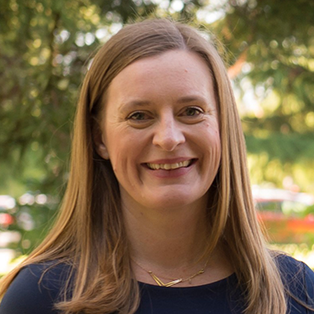
Co-Director, Institute of Governmental StudiesSusan D. Hyde is a Professor of Political Science at the University of California, Berkeley, and the Avice M. Saint Chair in Public Policy. She studies international influences on domestic politics, teaches courses on international relations and comparative politics, and is active in promoting policy-relevant research. She is an expert on international election observation, election fraud, democracy promotion, and international norms. From 2016-2018 she was elected as the Executive Director of the Evidence in Governance and Politics (EGAP) network. She coauthored Information, Accountability, and Cumulative Learning: Lessons from Metaketa I, published in 2019 by Cambridge University Press, based on a large collaborative effort to design and implement a new research model for coordinated field experiments. Her first book, "The Pseudo-Democrat's Dilemma: Why Election Observation Became an International Norm", was published by Cornell University Press in 2011. Her articles have appeared in the American Journal of Political Science, the ANNALS of the American Academy of Political and Social Sciences, the Annual Review of Political Science, Comparative Political Studies, International Organization, the Journal of Elections, Public Opinion and Parties, the Journal of Politics, Perspectives on Politics, the Journal of Experimental Political Science, Political Analysis, the Review of International Organizations, Science Advances, and World Politics.
